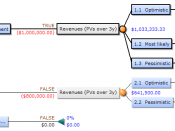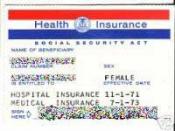"Evidence is Always the Primary Basis for Making a Decision"
- Discus with reference to specific examples and different disciplinary constructions of decision-making.
Decision-making is the heart of our day-to-day lives and whether we realise it or not, we make thousands of individual decisions a day. Everything from what food to eat, to what way to tie your shoelaces is constituted as a decision and on this basis, it should be evident why so much attention has been placed and continues to be placed on how to improve decision-making processes. However, academics have found it challenging to design an optimum method of decision-making due to the vast array of variables & their complex interactions that can affect even the simplest of decisions. In modern literature, much has been written about evidence based decision-making (EBDM). The main idea is that decisions supported by solid analysis and concrete facts are likely to produce improved outcomes than decisions made instinctually or from untested theories.
The purpose of this essay is to investigate whether evidence is the primary basis for making a decision and by doing so, evaluating the strengths of EBDM and in what situations this model is not the primary basis by offering alternate hypotheses.
The simplest way of demonstrating how evidence is the primary basis of making a decision can be shown by looking at the decisions we make on a daily basis. For example, when we order food of a menu in a cafeteria, we are faced with many decisions such as "How much to eat?" "What to eat?" "What to drink?" etc⦠Without realising, we make our decisions by evaluating how hungry we are, comparing prices of different options (data) and we research a new option on the menu by asking an employee. The use of data, evaluation &...


